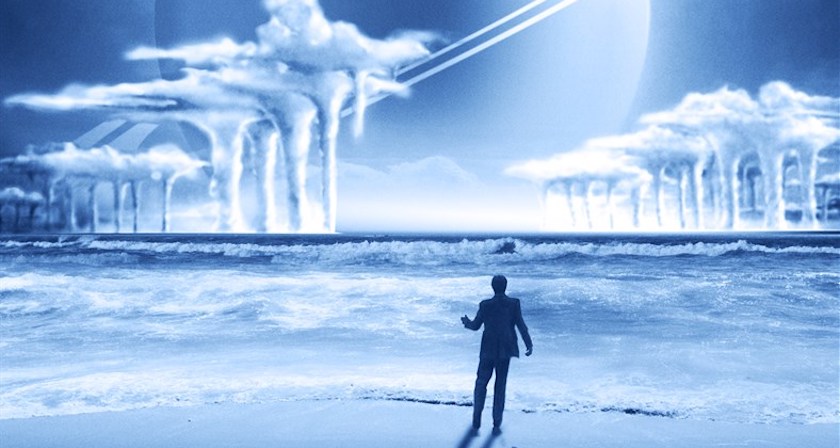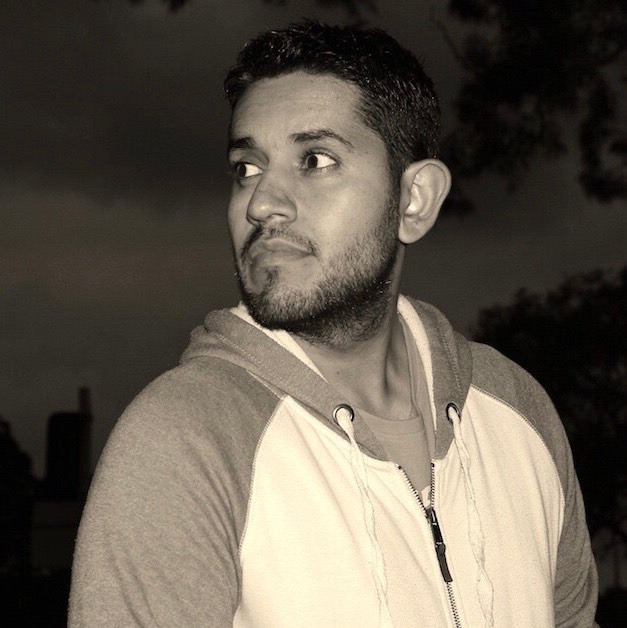
My early teens were my most informative years and at a time when I was discovering filmmakers (as opposed to just knowing movie titles), one filmmaker whose name resonated with me was New Zealander Geoff Murphy. He had directed Young Guns II and Freejack, which were two VHS titles that I thrashed in my bedroom. He later went on to direct Under Siege 2 and Fortress 2 and despite his later career being defined by poorly received sequels, it is his earlier work throughout the 1980s that make him an important filmmaker.
Following the success of his breakthrough film Goodbye Pork Pie (’81) and his indigenous revenge thriller Utu (’83), he went on to make The Quiet Earth, a high-concept science fiction drama made with minimalistic artistry. Based on a novel which was itself inspired by the likes of The Omega Man (aka I Am Legend) and Dawn of the Dead, the film chronicles the aftermath of “The Effect”, a mysterious apocalyptic event that rendered the Earth uninhabited.
Bruno Lawrence plays Zac, a scientist who wakes up to find himself alone in the world. Seemingly having missed The Effect by just a few hours, he wanders out into the city in search of answers. With the realisation of being the only person alive, he runs amok and relishes the freedom of zero consequence. He moves himself into a mansion and drives cars through shopping centres, only to find his sanity gradually slipping. After weeks of solitude and the onset of psychosis, he finally discovers a young woman, whose confusion is of great comfort to him. They resume the search for other survivors, eventually finding one last person, a man with a shady past.
Murphy’s surreal and ambiguous drama is a tour de force, taking cues from a multitude of places and fashioning its influences into something deceitfully original. Using a contemporary landscape whereby civilisation appears normal – albeit sans people, Murphy’s production is basic yet haunting. The sight of these sole survivors moving amongst abandoned properties and dissolute streets is both unnerving and beautiful, and while audiences have seen it done before, the New Zealand setting can make it all the eerier and close to home for certain viewers. Lawrence commands the screen with a forlorn demeanour, giving a stellar performance as a man on the edge. His turn in The Quiet Earth is fearless as he leads the story with confidence, often appearing fully nude, and his emotional range and trajectory serves as a masterclass for all aspiring actors. From a child-like sense of adventure in the film’s first act, to the problem-solving seriousness in the second, and to his jealous and tormented realisations in the final act, there is no doubt that this was the performance of his career.
Alison Routledge and Peter Smith co-star as the two companions, Joanne and Api, whose pasts are uncertain and concerning. Routledge gives a fantastic performance as she also runs her character through a gauntlet of personas. At first overzealous and hopeful, she soon navigates a darker attitude, bringing her story into question, as does Smith’s braun and thuggish character. As their relationship becomes closer, pushing Zac to the side, the whole question of their existence begins to control their actions, and what began as a straightforward concept film spirals into a deep philosophical question of universal existence and metaphysical possibilities. Are they actually dead and caught in a state of purgatory, or have then been trapped inside a tear in the fabric of time and space? Do they really exist at all, or are they inside a dream?
The Quiet Earth arrived at a time when New Zealand cinema was going through its renaissance, with emerging filmmakers of the era including Vincent Ward, Jane Campion, Peter Jackson and Roger Donaldson (Hollywood director Lee Tamahori served as assistant director on TQE also). And while across the pond Australian cinema was going through its yet-to-be-coined “Ozploitation” phase, the genre films coming out of New Zealand were generally more intellectual and somewhat ambiguous.
Several years ago I was discussing Australian cinema with American filmmaker Albert Pyun – whose films include post-apocalyptic titles like Cyborg, Radioactive Dreams, Alien From LA and Nemesis ““ and the one film he cited as his favourite (and most influential) was The Quiet Earth (granted, it wasn’t Aussie). We entered into a conversation about its meaning and talked about its obscurity in the home entertainment market. Once a popular video rental, it had seemingly bypassed the digital age entirely… until now.
Umbrella Entertainment have recently released The Quiet Earth on Blu-ray, fully restored as part of their Beyond Genres collection. They have given new life to this mostly forgotten film and returned it to contemporary cinematic conversations. Schools should include it in their syllabus and rising filmmakers should study it. Science fiction fans need to rediscover it and suckers for mind-altering ambiguity in film should pick it apart like vultures to a carcass. It is a wonderful film and a glowing example of how to get bang for buck… sometimes a good story and good performances is all a movie needs. Thank God this one’s been rediscovered and salvaged.










